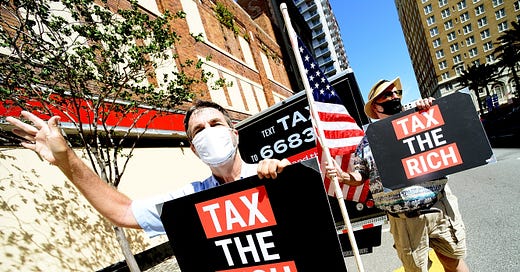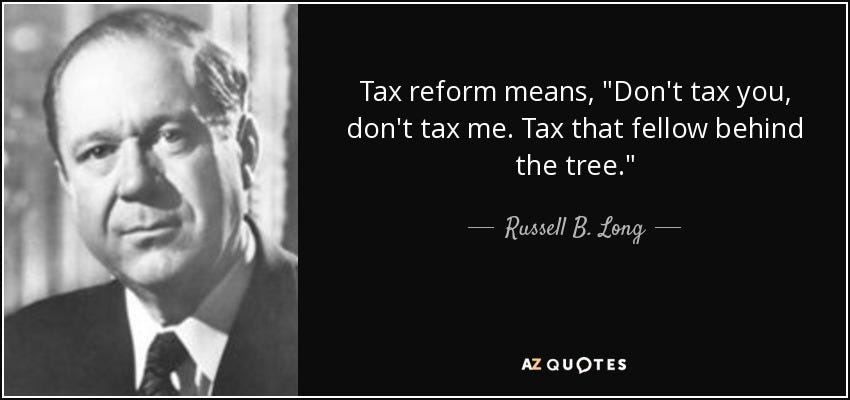Republicans are determined to keep President Trump’s 2017 tax cuts, but struggle to close the nearly $4 trillion gap those cuts open between federal income and spending over the next decade.
Elon Musk’s government efficiency efforts will not hit the targeted $1 trillion saved. The current DOGE website (https://doge.gov/savings) announces that savings identified to date total $160 billion.
And that includes asset sales and contract terminations that are “one-time” savings. DOGE is not on track to show spending reductions paying for the Trump tax cuts.
So last week a rumor floated on Capital Hill that Republicans might entertain a “millionaire tax” to offset the President’s proposed tax priorities. When asked about such a tax, President Trump panned the idea, saying:
“I think it would be very disruptive because a lot of the millionaires would leave the country. In the old days, they left states. They’d go from one state to the other. Now, with transportation so quick and so easy, they leave countries. You’d lose a lot of money if you do that.”
Most economists reacted somewhat critical of the President’s response. Millionaires leaving America (a phenomenon in economics grouped under the title “capital flight”) can happen. But its not the biggest challenge to “taxing millionaires.”
The bigger question is, “When taxing millionaires, what do you tax?” Income? Property? Total assets? Purchases? It turns out that every method of taxing millionaires has problems.
A “millionaire” is defined as an individual with a net worth of at least one million dollars. But the average American is estimated to make $1.7 million in a lifetime of work. A very frugal average earner who saves most of what they earn will eventually be a “millionaire.”
That penny-pinching “average earner” is not who most politicians are wanting to tax.
When pinned down, politicians will move away from “net worth” and talk about millionaires in terms of “annual income.”
The incomes of the top one percent wealthiest Americans start at $800,000 per year. But here is a secret most Democrats know but don’t mention: at $800,000, “income” becomes “discretionary.”
That means most people earning at that level have a choice: Do I take my money as “income” or do I keep it where it is now (usually as some kind of earning asset, a business, a stock, a piece of a mutual fund, etc)?

Because, for these millionaires, income is optional, a millionaire tax based on income falls heaviest on those lacking options: those forced to generate income to cover an accidental loss (like flood or fire), natural disaster (like drought or hurricane), or pay for a medical crisis.
The vast majority (over 70%) of these unfortunate millionaires are small to mid-level business owners. A hefty tax that simply adds to their burden when crisis hits will just selectively remove those businesses. They fail, their owners go bankrupt, and competition holding down prices at “the biggest businesses” gets just a little less.
So, most efforts to “tax millionaires” eventually take the form of some kind of consumption tax. Think of taxes on yachts, gold necklaces and mink stoles. American mink farmers and gold mining operations will tell you the tax is on them, not on the millionaire.
And we tried a yacht tax. We found out that expensive boats float on oceans, the other side of which is usually another country where they also sell boats. Millionaires who want expensive boats just buy them at their destination ports and dock them back at a convenient port in America.
Chris-Craft, the Sarasota Florida-based watercraft manufacturer, nearly went bankrupt, and they don’t specialize in what most people would consider a “yacht.”
We’re left with politicians who say “tax the millionaires” really meaning “tax someone or some business besides your own.” Taxing “the guy behind the tree” is the last refuge of a scoundrel and dishonest politician, and the guy behind the tree is getting harder to find.
Trent Clark of Soda Springs has served in the leadership of Idaho business, politics, workforce, and humanities education.
For more information on this topic, check out this detailed analysis by the Manhattan Institute: The Limits of Taxing the Rich






